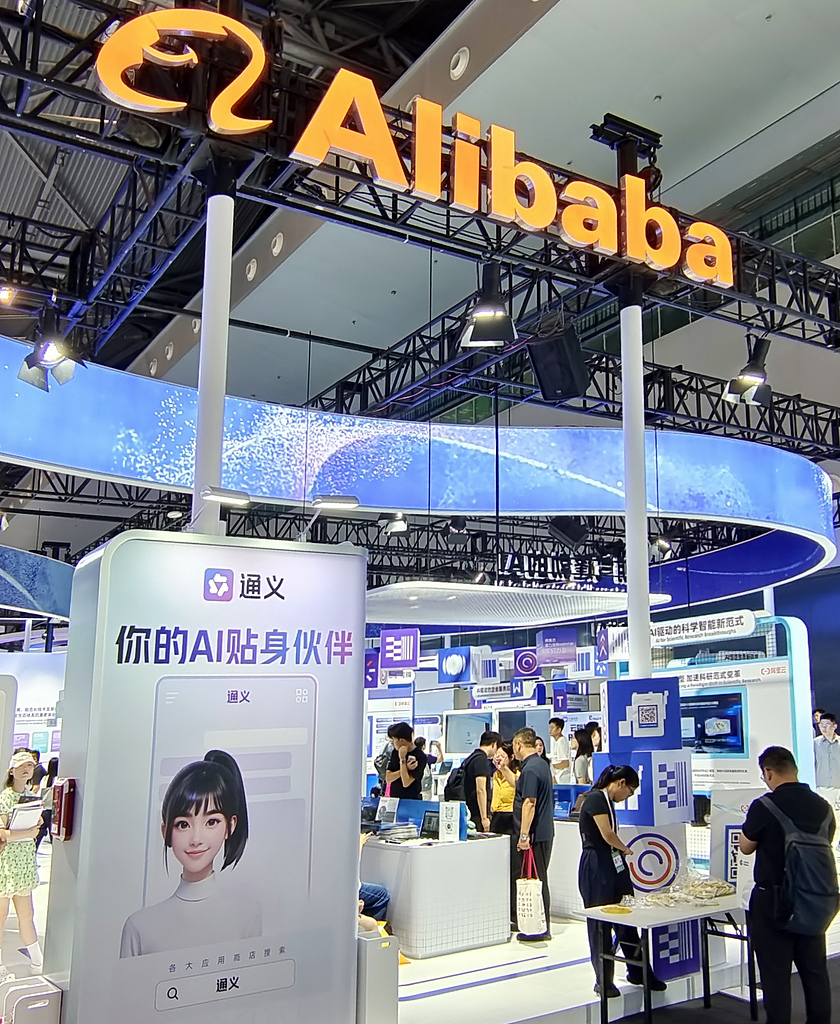Alibaba boosting AI tech for efficiency


Chinese tech heavyweight Alibaba Group Holding Ltd is ramping up efforts to leverage fast-developing artificial intelligence technology to boost the digital and intelligent transformation of enterprises and increase product sales of merchants.
Alibaba's business-to-business online trading platform 1688 has rolled out a series of AI-powered tools to help buyers search and select products more efficiently, improve the efficiency and intelligence level of management, and reduce operational costs.
The platform has updated its AI digital employees, who will take charge of fundamental operational tasks, such as releasing product information and formulating marketing activities, while analyzing market trends and making business strategies.
Currently, the company has integrated Alibaba's Qwen large language models and Chinese AI startup DeepSeek's open-source models into its systems, as it is committed to empowering businesses through the in-depth application of AI, and providing strong support for the digital transformation of traditional industries.
Mo Daiqing, a senior analyst at the Internet Economy Institute, a domestic consultancy, said AI is improving all parts of e-commerce, from supply chains to how businesses interact with customers, while the shift toward digital platforms and AI-driven trade opens new frontiers for businesses, particularly small and medium-sized enterprises, which now have digital tools to engage with international markets.
Mo noted that the use of AI has entered a new stage, with major internet companies accelerating AI applications in fields including consumption and production, injecting strong momentum for future innovation and development.
The State Council, China's Cabinet, recently issued a guideline on deeply implementing the "AI Plus" initiative. The country will promote the use of AI in science and technology, industrial development, consumption, people's well-being, governance capability and global cooperation, according to the guideline.
By 2027, China will achieve extensive and deep integration of AI in six key sectors, with the penetration rate of new-generation intelligent terminals and AI agents surpassing 70 percent, and this figure will exceed 90 percent by 2030, the guideline said.
Pan Helin, a member of the Expert Committee for Information and Communication Economy, which is part of the Ministry of Industry and Information Technology, said more efforts should be made to give full play to platform enterprises' advantages in AI and big data, to expand the application scenarios of AI in a wider range of sectors.
For SMEs, AI is not only a cutting-edge technology, but also one that provides a valuable opportunity for achieving transformation and upgrading, and improving the core competitiveness of enterprises, he added.
Alibaba is betting big on AI and has announced it will invest more than 380 billion yuan ($53.2 billion) in building cloud and AI hardware infrastructure over the next three years.
The company said that its revenue increased 2 percent year-on-year to 247.65 billion yuan during the April-June period, with its core e-commerce and cloud computing businesses reporting robust growth.
Revenue from its cloud business rose 26 percent year-on-year to 33.4 billion yuan during the period. This momentum was primarily driven by public cloud revenue growth, including the increasing adoption of AI-related products.
AI-related product revenue achieved triple-digit year-on-year growth for the eighth consecutive quarter. As AI demand continues to grow rapidly, the company said it is seeing increased demand for computing, storage and other public cloud services to support AI adoption.
It will continue to invest in anticipation of customer growth and technology innovation, including AI products and services, to increase cloud adoption for AI.




































